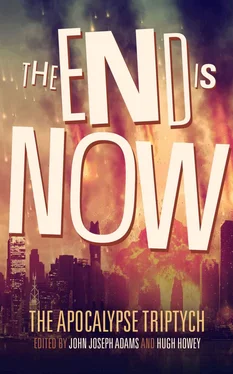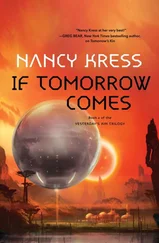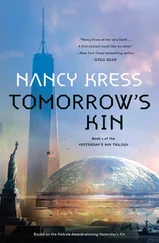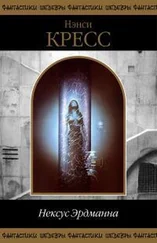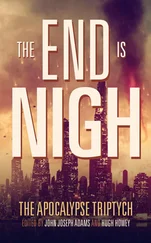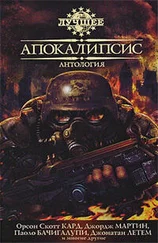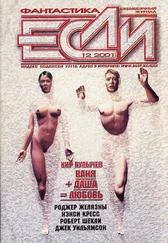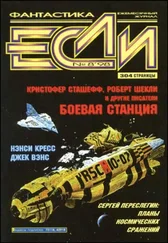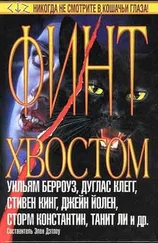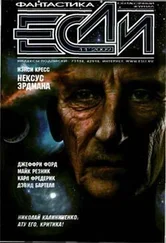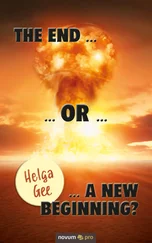But she had a chance, didn’t she? She had a glimmer of hope, along with a hidden packet of blue silver opium—the last Pilus Lunares. She’d find Darwin, alive, and she’d keep him alive. She’d save him if she could, by the hair of the moon.
ABOUT THE AUTHOR
Jamie Fordis the great grandson of Nevada mining pioneer Min Chung, who emigrated from Kaiping, China, to San Francisco in 1865, where he adopted the western name “Ford,” thus confusing countless generations. His debut novel, Hotel on the Corner of Bitter and Sweet, spent two years on the New York Times bestseller list and went on to win the 2010 Asian/Pacific American Award for Literature. His work has been translated into 32 languages. Jamie is still holding out for Klingon (because that’s when you know you’ve made it). He can be found at www.jamieford.com blogging about his new book, Songs of Willow Frost, and also on Twitter @jamieford.
TO WRESTLE NOT AGAINST FLESH AND BLOOD
Desirina Boskovich
They said the world would end on Friday. The next moment we’d all be on Planet X, which was like heaven, but in real life.
In Missouri it was supposed to happen at exactly four o’clock. We gathered ’round the living room with the shades down and the lights off, watching the TV and praying while we waited to disappear. It was me, and Jane, and Larry, and Tim. Plus Sylvie, who was crying all the time now. And Dad, of course. Mom had been enforced.
Eventually the TV turned to static as the last station went off the air. We turned it down low and waited some more.
3:55. 3:58. 3:59.
Nothing happened.
4:01. 4:02. 4:05.
Nothing at all.
Larry got up first and peeked out the blinds. That was Larry for you: always curious, always wanting to know. “There’s people,” he said. “Runnin’ around.”
Dad went to the gun cabinet and took out two double-barreled shotguns. One for him, one for me—I was fifteen, old enough to drive, and old enough to shoot, even as a girl. “Can I have one?” Jane asked, but he shook his head. She was only twelve.
At 4:25 the TV picture came back, and every channel was the President, saying: “My fellow Americans . . . We were tricked.”
Apparently, like Dad, the government had had their suspicions. What if the aliens were con men, liars, cheats, and fakes? NASA, the Pentagon, the CIA—they’d reached out to others, through secret channels, the President said. They’d refused to be victims. They’d made other plans.
“We are bruised, but not beaten,” he declared. “Damaged, but not defeated. Now, we must go to war against the alien invaders. We must defend not just our country, but our planet. I stand here today—and I beg you—from the bottom of my heart: Stand with me. We must—we will— we will stand together. God bless the United States of America!”
My father cursed and turned off the set. “Aliens,” he said. “Bullshit. I knew it all along.” He turned on me, sharp and harsh. “Annette. Can you please get your sister to stop that damn crying? I’ve got to make some calls.”
“Okay,” I said. I put down the shotgun and picked up Sylvie. “Come on, sweetie. Let’s take a nap.”
* * *
When I came downstairs a bunch of men were sitting around the dining room table.
I listened to them whisper. They were saying what dad had said all along: that it was a vast conspiracy, the scientists and the government and the people on the news. They wanted to impose a one-world government, install martial law, confiscate our guns. “A war on the free-minded,” they called it, but actually there weren’t so many free-minded left. They’d all been enforced.
Mom had been free-minded. That’s why she was gone.
People kept coming to the door with stories to tell: Smashed cars scattered across the intersections. Fistfights in the streets. Gas stations run dry. City blocks aflame. Supermarkets with their windows bashed in and their shelves stark empty, three customers brawling over the last frozen ham.
And enforcers being chased down, beaten, and shot.
Jane stood behind me, listening in. She was twelve and thought she was awfully grownup, but she didn’t need to hear all that. “Come help me fix supper,” I said.
Supper was just sandwiches, a selection of bologna on white bread and PB&J. We were carrying the platters to the table, when someone outside started beating on the door, hammering the bell, screaming for help.
Dad looked around. “Anyone expectin’ someone? ’Cause by my count that’s everybody.” He went to the window by the door and peeked around the shades. “It’s Don.”
Don went to our church, before he’d become an enforcer. No one had spoken to him since.
Jane and I set the chips and sandwiches on the table. “Go get the soda,” I told her.
“You do it,” she said.
Dad opened the front door a crack, the chain still up. “What do you want?” he demanded.
“Please,” Don said, crying. “I heard people were meeting here. I’m begging you. Just let me in. They’re going to kill me.”
“Sorry,” Dad said, not sorry at all.
“But what about forgiveness?” Don pleaded. It was so quiet around the table you could hear our stomachs gurgling, but outside the door sounded the roar of building chaos: yelling crowds, screaming sirens, squealing tires, and the constant crackle-pop of guns going off. “What about mercy? What about fellowship? What about turning the other cheek?”
“What about it?” Dad said, and slammed the door in Don’s face.
Don shrieked and the mob howled and we heard tussling and scraping and something hard thudding against the door. A shot rang out, then another.
My brother began to move toward the curtains. “Larry,” my dad said, in a dangerous voice, “Don’t you dare look out that window.” Then he returned to the table. “Now. Where were we?”
They scarfed down the sandwiches and planned a war.
Later, when no one was watching, I peeked outside the window. I saw Don, or what was left of Don—a pile of torn clothes and leaking body fluids and splattered brain matter and a lake of blood—and a broken casserole dish, tuna noodles and busted glass mixed together with all the human gore.
That night they boarded up the windows.
When bedtime came, Jane and I took the kids upstairs. Jane led the prayers, but even after she said “Amen,” she continued to pray in silence, her hands folded and her eyes closed, her face turned toward the window and the night sky. I sat with her until the waxing crescent moon rose high and bright.
* * *
By the next morning the power was out, but our generator was on. Later that day the President got on TV and declared martial law, just like Dad had predicted.
Soon the army tanks were rolling down the streets, the soldiers waving, while people came out of their houses to clap and cry and wave the flag. Everyone was mad as hell; everyone was ready for war.
At our house more guys arrived all the time. Soon we had a dozen people living at our house ‘round the clock and another dozen coming in and out, all hours of the day. I wanted to listen to the war plans, but I had to spend all my time cooking, doing the dishes, washing the towels and sheets. I made Larry help me, though he complained the whole time. Jane had an entire nursery going upstairs now with the motherless babies and toddlers that other widowed fathers had brought along.
I folded the laundry and watched the news. It was all overheated talk shows, playing and replaying the blurry footage of the aliens landing in Siberia or Greenland, setting up a massive camp.
Читать дальше
